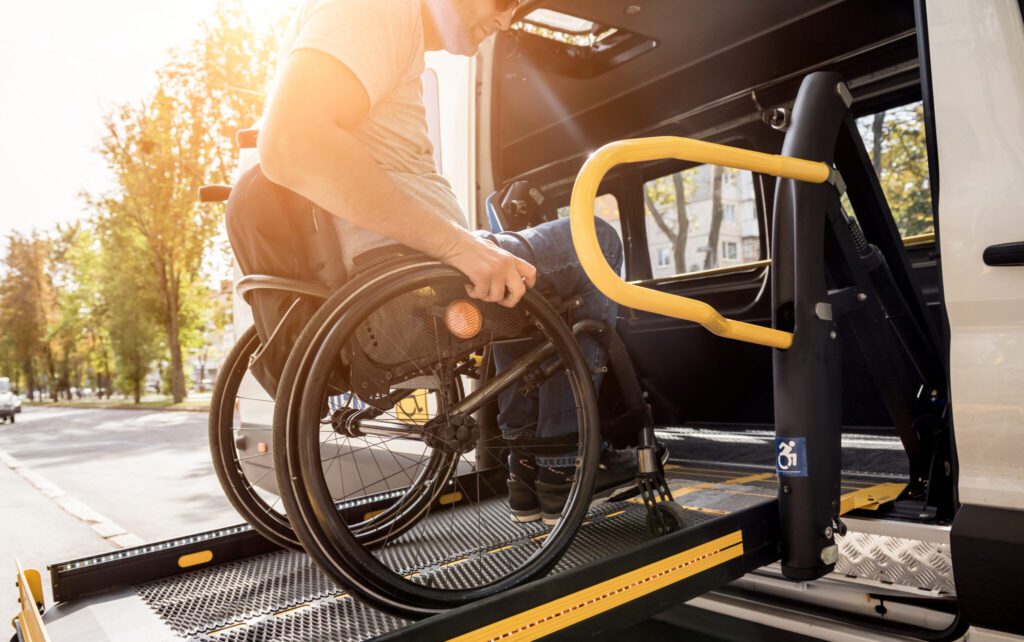Making sure entire taxi experience is accessible to everyone

Since the pandemic, we often hear about a shortage of taxis and taxi drivers. For wheelchair users and those with other disabilities, taxis are a lifeline and the difficulties they face go beyond simply being able to book a wheelchair-accessible vehicle.
Most taxi drivers would go out of their way to help passengers and The Disability Act 2010 ensures further protection by making it illegal for taxi and PHV drivers not to take a passenger because of a disability or because they are travelling with an assistance dog. Those guilty face fines of up to £1,000 or losing their taxi badge.
But it is not just about ensuring there are wheelchair-accessible vehicles. The entire experience must be taken into account, including how easy it is to book or hail a wheelchair-accessible vehicle, the process for getting in and out of a cab, as well as other obstacles to consider.
Reviews
Following the updated Taxi and private hire vehicle licensing best practice guidance for licensing authorities in England, Wiltshire Council is among those that are reviewing taxi ranks for accessibility.
The guidance shows that disabled people are particularly reliant on taxi and private hire vehicle services because “they may not have access to a private car, are unable to use public transport, or because the built environment is insufficiently accessible to meet their needs.
“This can mean that the availability of an accessible, affordable taxi or private hire vehicle service can make the difference that allows them to live their life the way they want to, and ultimately, to fulfil their potential.”
The aim of the guidance is to ensure that disabled people can travel easily, confidently and without paying more. And reviews such as that being carried out in Wiltshire will also identify obstacles faced by disabled people which are not always obvious.
Barriers
This includes ensuring taxi ranks have enough space to deploy wheelchair ramps and that waiting areas have seating for people unable to stand for long periods.
It also deals with the availability of WAVs to ensure that every passenger can travel when and where they want to, as well as making sure vehicles can accommodate larger or heavier wheelchairs.
The guidance further emphasises the need for private hire vehicles to be able to pick up passengers in large or complex car parks, such as at airports or railway stations, and wants councils to review street designs which prevent taxis and private hire vehicles from stopping close to destinations.
The guidance states: “Every taxi and private hire vehicle passenger is an individual, each with their own unique wishes and requirements, none more than a disabled passenger using services. It is, however, important to recognise that there are certain access barriers which will be familiar to people with similar impairments, which authorities should take time to understand.”
Awareness
As well as overcoming practical barriers, councils must ensure drivers are trained in disability awareness and “uphold the highest standards of customer service”. This includes appropriate attitudes, behaviour and skills, as well as assistance that can be provided to all passengers. Drivers should also understand and be able to identify the different barriers that disabled people face when using taxis and private hire vehicles, whether they are travelling to medical appointments, the supermarket, work or for leisure purposes.
The guidance highlights the importance of “taxis and private hire vehicles enabling disabled people to be independent”.
This includes supporting wheelchair users getting in and out of vehicles, as well as being able to travel in safety and comfort while seated in their wheelchair.
And there should be “sufficient vehicles meeting disabled people’s access needs, to allow them to travel as easily, between the same locations and at the same times, as non-disabled people”.
Reviews such as the one being carried out in Wiltshire are vital because the Government says policy decisions should be informed by an “accurate and up-to-date understanding of the experience and needs of disabled people with a range of visible and less visible impairments” and calls for action to improve the accessibility of the services supported.
This will help give disabled confidence that services will meet their needs and they will be treated with the same respect and courtesy taxi drivers show to other passengers.






